Show Boat (1936)
“Love is such a funny thing; there’s no sense to it.”
|
Synopsis: |
|
Genres, Themes, Actors, and Directors:
Response to Peary’s Review: I’m in agreement with most of Peary’s assessment points: the production is indeed “lavish”, the cast is in fine form, and many of the songs are quite enjoyable. I also appreciated the opportunity to see Show Boat-theater so lovingly revived for modern audiences, who otherwise would have little understanding of this erstwhile form of traveling entertainment. However, I don’t find the film as a whole nearly as engaging as Peary seems to. The primary problem is that the central narrative — about Dunne’s rocky road to fame and troubled marriage with Jones — simply isn’t all that interesting, and the most compelling characters — Morgan, McDaniel, and Robeson — are relegated to supporting roles. The miscegenation subplot which propels the earliest portion of the screenplay is quite fascinating, and Whale deftly handles a pivotal scene in which Cook takes unusual measures to demonstrate his commitment to Morgan; but other than a critical appearance once more later in the story, Morgan’s tragic story is left sadly unexplored. Meanwhile, Robeson’s performance of “Old Man River” does indeed remain (for me) the film’s indisputable highlight, leading me to wish we could learn more about his soulful character as well (the Expressionist montage flashing across the screen while Robeson sings could easily morph into a film of its own). To that end, as Peary notes, “the film’s portrayal of blacks is a sticky issue”, given that “on the one hand, they fit into stereotypes”, but “on the other, they display class, talent, [and] strength”, and are “given quality screen time”; overall, I think Whale does a respectful job handling the film’s thorny race issues, despite the unfortunate yet historically realistic appearance of Dunne in black-face at one point. Indeed, Whale’s direction is never at fault, and fans of his work will surely be interested to check out his foray into a genre completely different from the one he’s best known for (horror). But unfortunately, I can’t quite recommend this title as must-see viewing for all film fanatics. Redeeming Qualities and Moments:
Must See? Links: |
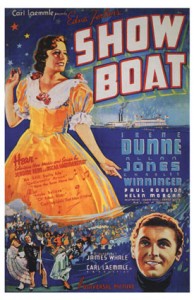
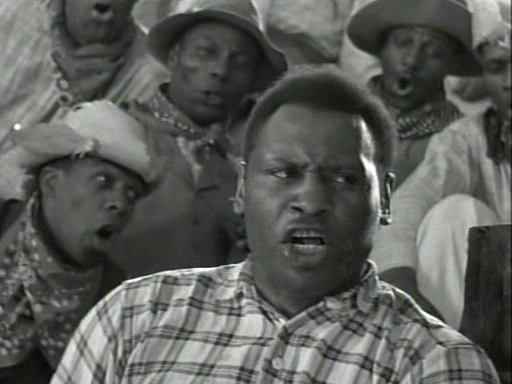

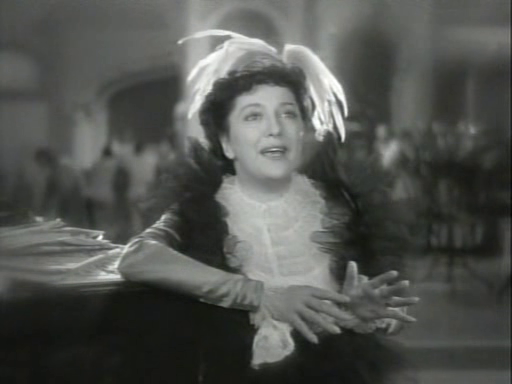
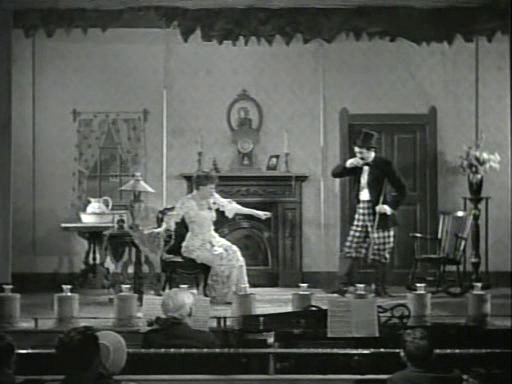
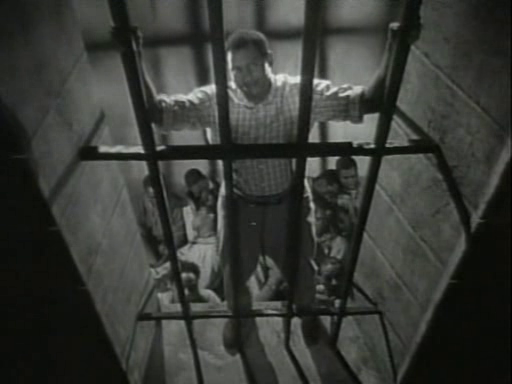
2 thoughts on “Show Boat (1936)”
A must – for its place in cinema history, and as a marvelous adaptation of a musical.
If I correctly understand the reservations put forth in the assessment, ‘Show Boat’ is either seen as somehow unsatisfying as a whole piece, or the secondary elements are deemed more interesting than the main ones. While I can understand how either feeling is reached, I take a more general view.
In doing so, I find the film thoroughly captivating and masterfully realized. (It’s rather puzzling that it’s not on DVD.) Yes, the cast is a bit large (we do want to spend more time with some of the supporting characters) – and, yes, the central narrative may fall along lines of ordinary love story (though I find the trajectory of it compelling and believable). But, thanks to Whale’s strong, clear-eyed direction – and the pitch-perfect performances of the cast – ‘Show Boat’ remains one of the finest musicals ever; it’s easy to become invested early on, and stay that way throughout its fluid, character-based storytelling.
Everything works well here, I think – including production design, camerawork, costumes, musical staging, etc. There’s a wonderful energy to the picture all-round, which doesn’t flag. The film has a strong script and the Hammerstein/Kern score is rich and varied.
The acting is ensemble caliber – though I have a particular fondness here for Winninger as Cap’n Andy; he’s so much fun to watch whenever he’s on. I feel this is one of Dunne’s finest performances (arguably her finest; she’s not a favorite of mine and I sense a sameness throughout her work but, working here with a director she reportedly didn’t like and didn’t think suitable for the film, she puts forth an interesting arc). I do also enjoy the work of McDaniel, Westley, Cook, Jones, Queenie Smith and Sammy White (the latter two as the boat’s comic dance team).
It would appear that special care was taken with the solos and duets so that they’re acted as well as sung. Robeson is, of course, mesmerizing and, yes, ‘Ol’ Man River’ is definitely a highlight. But, on seeing the film again this time, I was struck by how riveting Morgan is with her rendition of ‘Bill’ – somehow, while singing in an appropriately unadorned way about an ordinary man, Morgan simultaneously finds a depth of emotion which is transporting, and which helps fill in the gaps surrounding her character.
Whale is very specific in his direction – and what’s most enjoyable are all of the little touches he places throughout. Here, there’s a ton of them to keep the viewer continuously entertained. I do particularly like his handling of the “strong moral play” performed on the boat. Coming from a strong theater background, Whale knows just how to handle this kind of traveling show entertainment and throws in plenty of business that makes it quietly rollicking. (He even directs the audience members well in this sequence.)
The film’s storyline, to me, reflects the nature of a show boat itself: it comes to town and then it’s gone. Those in the story do the same – some we don’t see as much as we’d like, others disappear but, like the return of the show boat, come back into our lives.
To me, this is one very satisfying film – it has held up well over time, and is worthy of repeat viewings.
I prefer this version of the Broadway show to the 50s MGM film, perhaps because it is as close as we could get to seeing what it must have looked on on the stage, especially since Helen Morgan and Paul Robeson had been in the Broadway production – and Irene Dunne had played the role of Magnolia on tour.
I think the music is sublime.